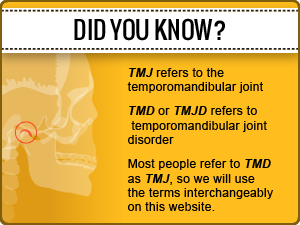The SPG Block is an amazing technique for treating all types of chronic pain. It is treatment for pain not necessarily the underlying disease. The Sphenopalatine Ganglion is the largest parasympathetic ganglia in the head and also has a sympathetic component.
This is part of the autonomic nervous system. Patients should consider it a reset button for their nervous system. It was made famous by the best selling book “Miracles on Park Avenue” that was published in the late 1980’s.
I have been doing this block since 1986 and have both taught and lectured on the technique. There are numerous patient videos describing effects of the SPG blocks at:https://www.youtube.com/playlist?list=PL5ERlVdJLdtllxAN1QwD7JU7Qo_ISoqvt
Does the Spenopalatine Block belong to a specialty or are there any specialists in its use. The answer is no. There is no specialty who owns this neurological miracle.
Dentists are considered the guardians of the Trigeminal Nerve which passes thru the ganglion. But ENT’s probably utilize the block most frequently but usually not for improving chronic pain disorders but as anestheitc for nasal procedures.
Neurologists have finally discovered the Sphenopalatine Ganglion in recent years due to easy methods to do the block.
Why has dentistry been utilizing this amazing technology for so long that has been ignored by other specialties? This block is frequently performed as part of routine anesthesia for dental and oral maxillofacial procedure much as ENT’s utilize it for anesthetic for procedures.
This is also a block well known by physiologic dentists trained in pain management. I have been routinely utilizing it since the late 1980’s and taught thousands of anti aging physicians in lectures about the technique. Unfortunately lectures are a very poor way to learn about this remarkable technique.
I have been teaching treatment of sleep apnea and snoring to small groups of physicians and dentists and their teams since 2001. In this small group setting we would actually do SPG Blocks on team members with all types of chronic pain from menstrual cramps, sinus pain, low back pain, neck pain, migraines and other problems.
Invariably, we would see improvements in all types of pain regardless of underlying diagnosis. In this one to one environment both doctors and their teams became believers it the technique and could actually practice on each other.
It was from this experience that I began teaching patients to self administer SPG Blocks. This is where the miracles really happen, when we give control of pain back to the patients.
Abraham Maslow talked about the hierarchy of needs with basic physiologic needs being the base of the pyramid. Freedom from pain is considered a basic physiologic need. Once free of pain people can literally take control of their lives.
Is there a specialty that owns the Sphenopalatine Ganglion Block? I would like to say it is physiologic dentists who are the only doctors who truly understand the trigeminal nervous system and how the trigemino- vascular system and trigeminal cervical complex relate in creating healthy physiology.
Everyone agrees the dentists are the masters of the trigeminal nerve and the mesencephalic nucleus, the heart of proprioception in the trigeminal nerve so it seems obvious that Physiologic Dentistry (often called physiological dentistry) owns this remarkable ganglion.
But I would be wrong. The specialty who owns the Spenopalatine Ganglion Block is not neurologists, dentists, ENTs or any other type of doctor. Pain Patients, who can learn to self administer SPG Blocks and control the quality of their lives.
The Specialists of the Sphenopalatine Ganglion are the very patients who need these blocks.
The SPG Block can be learned to be used by patients on a regular basis and an inexpensive and safe alternative to dangerous medications and injections of toxins like Botox.
I am available to teach dentists, physicians and patients safe and effective methods of doing Sphenopalatine Ganglion Blocks.
I have taught courses to hundreds of doctors and teams in Scottsdale, Seattle and Buenos Aires to Neuromuscular Dentists specifically on utilizing SPG Blocks for managing orofacial pain, TMJ disorders, Chronic Daily Headaches, Chronic Migraine, Cluster Headaches and other Autonomic Cephalgias. The 2017 course in Seattle had over 100 doctors and team members line up to try SPG Blocks.


Who had you trained in Scottsdale with these SPG blocks? Looking for someone to administer. Thx!
I believe Dr Nick Meyer (DDS) is doing them.
Hello, have you trained anyone to do SPG blocks in Madison, WI? Looking for someone to also teach home application. Thanks much!
I frequently have patients from across the country come in to learn the procedure.
Dr. Shapira, I am looking for a Dr. in NJ who does Ganglion block?
Diane, I do not know of anyone. I frequently see people from across the country who want to learn to Self-Administer SPG Blocks.
Please let me know, are there any Drs in Charlottesville, Va. that administer SPG blocks.
I am searching for a dr to provide treatment.
i don’t know of any. I frequently have patients come in for a day to learn how to self-administer SPG Blocks.